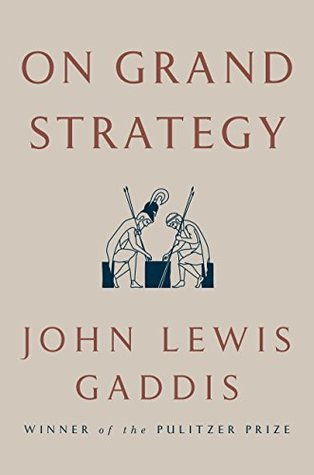More on this book
Community
Kindle Notes & Highlights
“Island” strategies require steady nerves. You have to be able to watch smoke rise on horizons you once controlled without losing your own self-confidence, or shaking that of allies, or strengthening that of adversaries.
the abstractions of strategy and the emotions of strategists can never be separated: they can only be balanced.
seek “knowledge of the past as an aid to the understanding of the future, which in the course of human things must resemble if it does not reflect it.”
Instead he seized opportunities while retaining objectives.
The explanation may lie in a logic of strategy that undergirds cultures—much as grammar does languages—over vast stretches of time, space, and scale. If so, common sense, when confronting uncommon circumstances, may itself be another of the contradictions held simultaneously in the minds of first-rate intelligences. For the practice of principles must precede their derivation, articulation, and institutionalization.
The actions of man, Kennan concluded, “are governed not so much by what he intellectually believes as by what he vividly realizes.”
While respecting the Neoplatonism that influenced early Christianity, Augustine shows that reality always falls short of the ideal: one can strive toward it, but never expect to achieve it. Seeking, therefore, is the best man can manage in a fallen world, and what he seeks is his choice. Nevertheless, not all ends are legitimate; not all means are appropriate.
The principle, for both Augustine and Machiavelli, reflects common sense: if you have to use force, don’t destroy what you’re trying to preserve.
There is no contest, in governing, between politics and morality: there is only politics. And no state respects Christian teaching on saving souls. The incompatibilities are irreconcilable.
Such systems thrive, theorists tell us, from the need to respond frequently—but not too frequently—to the unforeseen. Controlled environments encourage complacency, making it hard to cope when controls break down, as they sooner or later must. Constant disruptions, however, prevent recuperation: nothing’s ever healthy.
Just as coup d’oeil links strategy to imagination, so Clausewitz’s concept of friction ties theory to experience. These “must never disdain or exclude each other,” he writes: “[O]n the contrary, they support each other.”45 That places uncertainty within a universal framework. Or, to put it another way, Clausewitz anticipates, by more than a century, Murphy’s Law: that what can go wrong will. Or, still more succinctly, shit happens.46
So he demanded that Polk specify the “spot” on which, a year and a half earlier, Mexicans had shed American blood. If, as the president claimed, the war started in self-defense, then who, exactly, had been defending themselves? But Polk ignored him and Lincoln gained only the nickname “Spotty.”
“Necessity” was their only excuse for slavery, Lincoln insisted in 1854, and “so far only as it carried them, did they ever go.” They’d inherited the institution from the British, knew they’d have no nation without it, but hoped it would disappear on its own.
Both knew it would need federal subsidies, land grants, and military protection. Both expected southerners, wanting their own route, to demand compensation.
This declared indifference, but, as I must think, covert real zeal for the spread of slavery, I cannot but hate. I hate it because of the monstrous injustice of slavery itself. I hate it because it deprives our republican example of its just influence in the world—enables the enemies of free institutions, with plausibility, to taunt us as hypocrites—causes the real friends of freedom to doubt our sincerity, and especially because it forces so many really good men amongst ourselves into an open war with the very fundamental principles of civil liberty—criticizing the Declaration of
...more
his arguments laid lethal traps—so effectively that reporters, fascinated, could forget to take notes.
But logic also required picking some fights and postponing others. Lincoln refrained from questioning constitutional safeguards for slavery where they existed, or the three-fifths rule itself, or even fugitive slave laws.
Lincoln, in contrast, drew strength from contradictions, maybe because he contained so many. They gave him an amplitude35—physically, intellectually, morally—absent in his rival.


